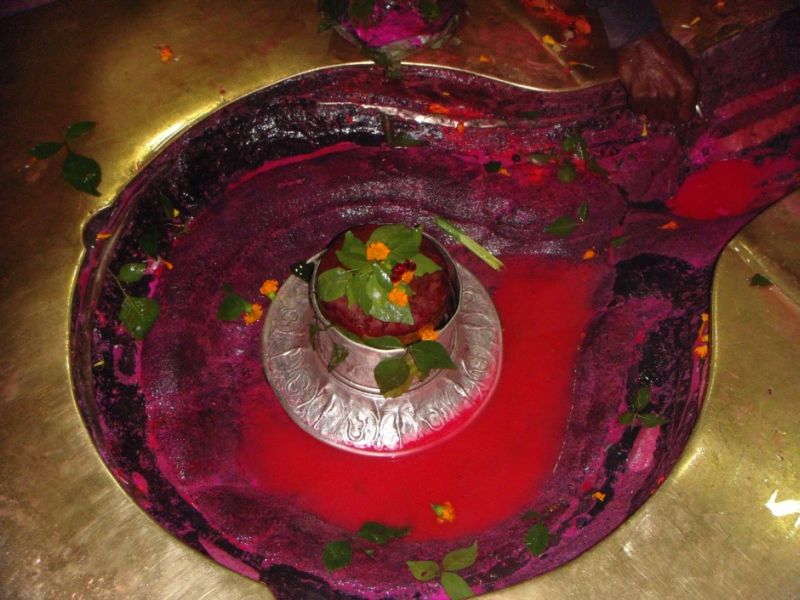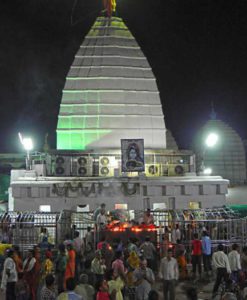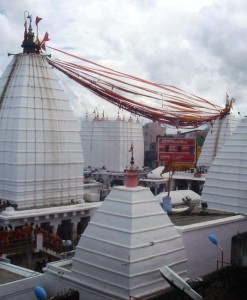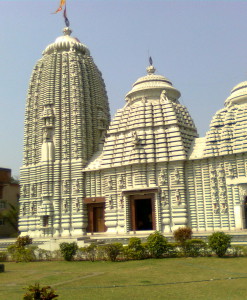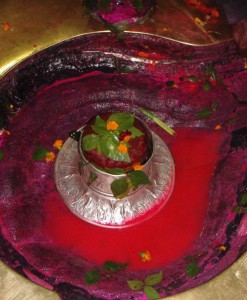No products in the cart.
Basukinath Dham is the Second most famous Temple in and around Deoghar. It is located en-route from Deoghar to Dumka. It is said that Basukinath temple is the court of Baba Bhole Nath. At Basukinath Dham, Shiv and parvati temple are just in-front of each other. In the evening when gates of both the temples are opened then the devotees are suggested to move away from in-front of the gates as there is a belief that Lord Shiva and Mata Parvati meet each other at this time. Basukinath is one of the most ancient temples. There are many other small temples of different Gods and Goddesses also in the same compound.
Basukinath Dham;
According to the stories narrated in the Shiva Purana, it was in the Treta yuga that Ravana the king of Lanka, felt that his capital would not be perfect and free from enemies unless Mahadeva (Shiva) stays there forever. He paid continuous meditation to Mahadeva. Ultimately Shiva got pleased and permitted him to carry his lingam with him to Lanka. Mahadeva advised him not to place or transfer this lingam to anyone. There should not be a break in his journey to Lanka. If he deposits the lingam anywhere on the earth, in the course of his journey, it would remain fixed at that place forever. Ravana was happy as he was taking his return journey to Lanka.
The other gods objected to this plan; if Shiva went to Lanka with Ravana, then Ravana would become invincible and his evil and anti-vedic deeds would threaten the world. On his way back from Mount Kailash, it was time for Ravana to perform sandya-vandana (evening prayer) and he could not carry out sandya-vandha with Shiva linga in his hand and therefore searched for someone who could hold it for him. Vishnu then appeared as a shepherd who was rearing sheeps nearby. Ravana requested Ganesh pretending as shepherd to hold the linga while he completes sandya-vandana and also guided him not to place the linga on ground at any movement.
Ganesha warned Ravana about leaving the linga on the bank of the river and walking away if he doesn’t return soon. Vishnu, pretending to be vexed by Ravena’s delay, set the linga down on earth. The moment linga was kept down, it got fixed to the ground. When Ravana after returning from Sandya-vandana tried to move the linga, but he could not. Ravan failed miserably in his attempt to uproot the linga. The Gods were happy with Shiva linga not reaching Ravana’s place.
By Road: Basukinath lies on the Deoghar – Dumka State highway and is located around 25 km northwest of Dumka.
By Rail: Basukinath Railway Station is located on Jasidih-Dumka New Railway line.
By Air: Dhanbad Airport is the nearest airport to the temple.
The Darshan Timings at Baba Basukinath Temple are given below.
Day Timing – 3:00 AM in the morning to 4:00 PM in the noon.
Night Timing – Sunset to 8:00 PM in the night.
Note: On Mondays, and Poornima (Full Moon Day) and during whole month of Shravan the Temple remains open to Darshan for more hours.
Basukinath is also famous for Shravani mela during July and August every year. Many devotees visit the place from various parts of India and offer holy water of Ganges to the deity collected from Sultangunj, Bhagalpur district in Bihar, which is almost 135 km from Basukinath. An unbroken line of people in saffron-dyed clothes stretches over the path between Bhagalpur and Basukinath is seen during the fair.
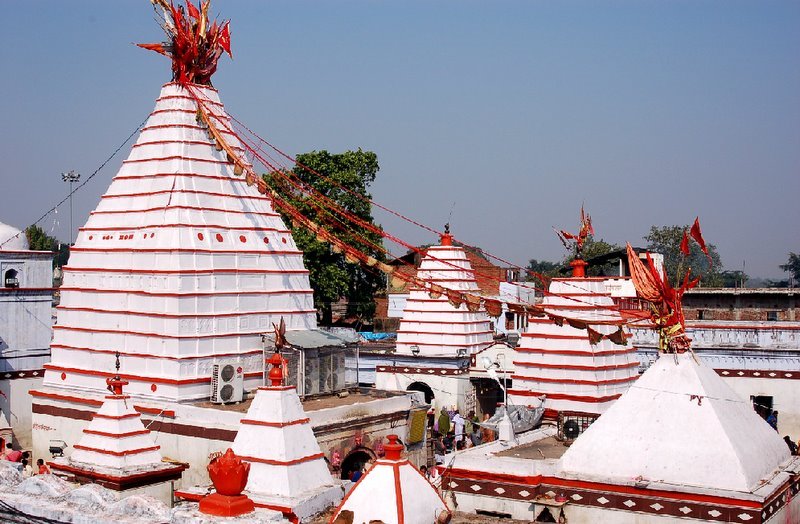
Ram Janki Vivah Utsav is celebrated every year on Vivah Panchmi at Basukinath Temple. Vivah Panchami is a Hindu festival celebrating the marriage of Ram and Sita. It is observed on the fifth day of the Shukla paksha or waxing phase of moon in the Margashirsha month (November – December) as per Hindu calendar. The day is observed as the Vivah Utsav of Sita and Rama in temples and sacred places associated with Sri Rama. Late Pandit Nainalal Jha, Pradhan Tirth Purohit Baba Basukinath, started the festival of “Ram Janki Vivah Utsav” in Basukinath. He used to celebrate this festival with lot of enthusiasm. A baraat which included elephants and horses participated in the procession. He used to call it “Palki Utsav”. Presently it is taken forward by his son Pandit Tara Kant Jha.

